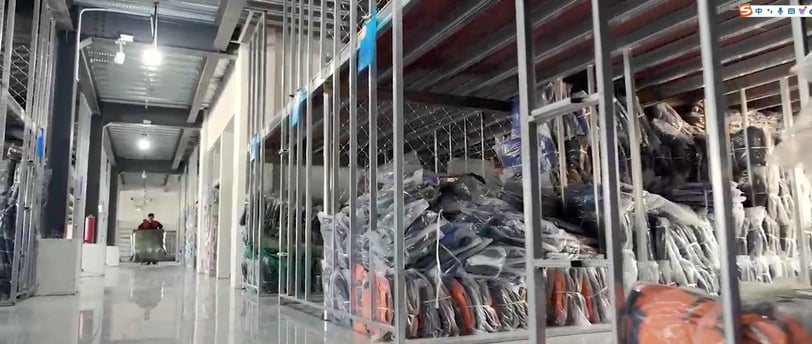The Ultimate Guide to Choosing the Best Backpack Manufacturers for Your Business
2/3/20252 min read


In the competitive world of wholesale and retail, selecting the right backpack manufacturer is crucial for your business success. Whether you're a distributor, retailer, or procurement agent, the quality, cost, and reliability of your supplier can make or break your operations. This guide will walk you through the key factors to consider when choosing a backpack manufacturer, ensuring you make an informed decision that aligns with your business goals.
1. Production Capacity and Scalability
When evaluating potential manufacturers, the first thing to consider is their production capacity. Can they handle large orders, especially during peak seasons? Scalability is equally important. As your business grows, you need a manufacturer that can scale production to meet increasing demand without compromising quality.
2. Customization Options
Customization is a significant advantage in today’s market. Whether you need branded backpacks for corporate clients or unique designs for niche markets, your manufacturer should offer flexible customization options. This includes the ability to choose materials, colors, and even add custom logos or features.
3. Quality Control
Quality is non-negotiable. A manufacturer with robust quality control processes ensures that every backpack meets your standards. Ask about their quality assurance protocols, such as inspections during production and before shipment. A reliable manufacturer will be transparent about their quality control measures.
4. Sustainability Practices
With increasing consumer awareness about environmental issues, sustainability is no longer optional. Partnering with a manufacturer that uses eco-friendly materials and sustainable production practices can give your business a competitive edge. Look for certifications like ISO 14001, which indicate a commitment to environmental management.
5. Cost and Pricing Structure
While cost is a critical factor, it shouldn’t be the sole deciding factor. Low prices might be tempting, but they often come at the expense of quality. Instead, focus on the value offered. A manufacturer that provides high-quality products at a reasonable price, with clear pricing structures and no hidden fees, is ideal.
6. Lead Times and Reliability
Timely delivery is essential in maintaining your supply chain and meeting customer expectations. Discuss lead times with potential manufacturers and ensure they have a track record of reliability. Delays can lead to lost sales and damaged relationships with your clients.
7. Communication and Customer Service
Effective communication is key to a successful partnership. Your manufacturer should be responsive, transparent, and willing to address any concerns promptly. Good customer service ensures that any issues are resolved quickly, minimizing disruptions to your business.
8. Ethical Practices
Ethical manufacturing practices are increasingly important to consumers. Ensure your manufacturer adheres to fair labor practices and provides safe working conditions for their employees. This not only aligns with your brand values but also reduces the risk of negative publicity.
9. Location and Logistics
The location of your manufacturer can impact shipping costs and lead times. While overseas manufacturers might offer lower prices, local manufacturers can provide faster delivery and easier communication. Consider the trade-offs and choose a location that best suits your business needs.
10. Reviews and Reputation
Finally, research the manufacturer’s reputation. Look for reviews from other businesses, ask for references, and check their track record. A manufacturer with a strong reputation for quality and reliability is more likely to be a trustworthy partner.
